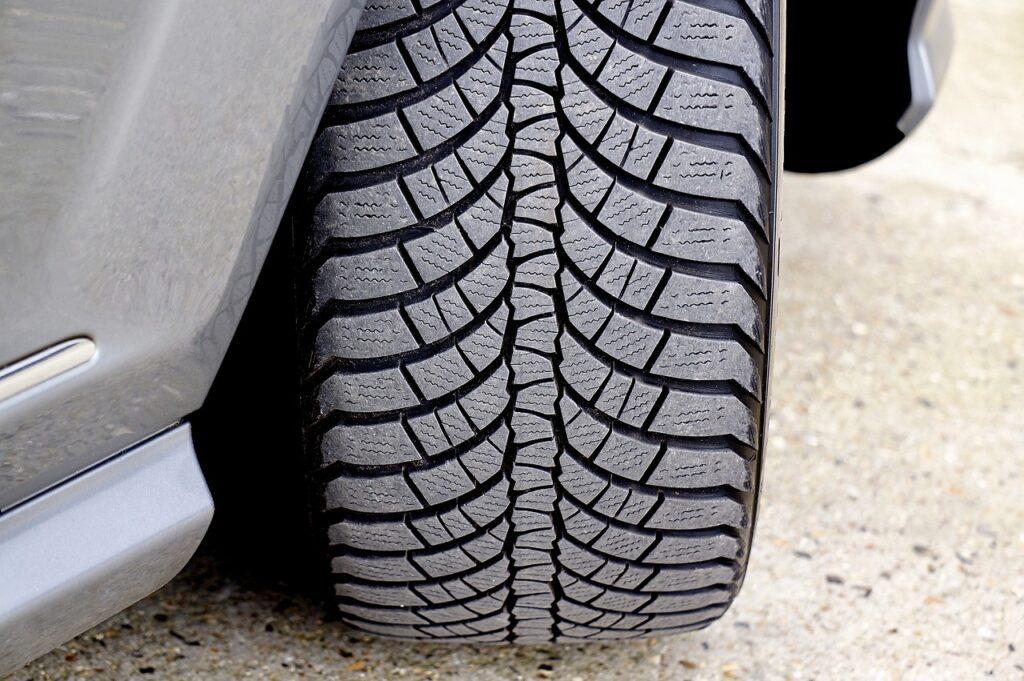Everything You Need to Know About Tyre Maintenance

Welcome back to our comprehensive vehicle maintenance series! Having covered the essentials of regular oil changes in our previous post, we now turn our attention to another critical aspect of car care: tyre maintenance. Tyres are your direct link to the road, and their condition affects not only the safety of your vehicle but also its performance and fuel efficiency. This makes understanding how to maintain them properly crucial for any car owner.
In this post, we’ll delve into why tyre maintenance is so important, discussing everything from the basics of tire care to how you can ensure your tyres are always ready to perform their best. We’ll explore the significant benefits of regular tire rotation and how it can extend the life of your tyres. Plus, we’ll provide you with practical tips on choosing the right tyres for your vehicle, tailored to your driving needs and conditions.
Whether you’re a seasoned driver or a newcomer to the world of automotive care, this guide will equip you with the knowledge to keep your tyres in top condition, enhancing your driving experience and ensuring your safety on the road. Stay tuned as we take a closer look at how simple practices can keep your tyres rolling smoothly and efficiently.
The Importance of Tyre Maintenance

Understanding the significance of tyre maintenance is essential for any driver. Properly maintained tyres are fundamental not only to the safety of your vehicle but also to its overall performance and efficiency. Here’s why keeping your tyres in top condition should be a priority:
Safety Aspects: How Good Tyre Condition Prevents Accidents
Tyres that are well-maintained have better traction and are less likely to fail in crucial moments, such as during sudden stops or in adverse weather conditions. Good tyre condition can significantly reduce the risk of accidents. For instance, adequate tread depth is crucial for effective water displacement to prevent aquaplaning. Regular checks and maintenance ensure that your tyres maintain optimal grip and structural integrity, keeping you and your passengers safe.
Performance Factors: Impact on Vehicle Handling and Braking
The condition of your tyres directly influences how your car handles on the road. Worn or improperly inflated tyres can lead to decreased steering precision and longer braking distances, making it harder to control your vehicle, especially in emergency situations. Regular tyre maintenance ensures that your car responds as expected when you steer, brake, or accelerate, providing a smoother, safer driving experience.
Efficiency Considerations: Influence on Fuel Consumption and Overall Vehicle Efficiency
Well-maintained tyres are also crucial for maximizing your vehicle’s fuel efficiency. Under-inflated tyres can increase rolling resistance, which means your engine needs to work harder to move your vehicle, leading to higher fuel consumption. By keeping your tyres inflated to the correct pressure, you ensure that your vehicle runs as efficiently as possible, saving you money and reducing environmental impact.
By appreciating the importance of tyre maintenance, you can take proactive steps to monitor and maintain your tyres, ensuring they are always in the best condition to perform. This not only contributes to the safety and efficiency of your vehicle but also enhances your driving experience, making each journey smoother and safer.
Benefits of Regular Tyre Rotation
Regular tyre rotation is a critical aspect of tyre maintenance, often overlooked despite its importance for prolonging the life of your tyres. Here’s why it’s essential to include tyre rotation in your vehicle maintenance routine, especially when seeking services from specialists like Mitsiland.
Purpose of Tyre Rotation
Tyre rotation involves moving tyres from one position on a vehicle to another, to ensure even tyre wear. Even wear is crucial because it extends the life of your tyres, improves vehicle handling, and maintains balanced traction across all four tyres. This not only enhances your driving safety but also optimizes your car’s performance.
Benefits: Extending Tyre Life and Promoting Even Wear
Rotating your tyres regularly helps to distribute the wear more evenly across each tyre. When tyres wear evenly, it prolongs their usability and prevents the common problem of one or two tyres wearing down faster than the others, which can lead to uneven handling and potentially unsafe driving conditions.
Recommended Frequency: General Guidelines
The general recommendation for tyre rotation is every 6,000 to 8,000 miles, but this can vary depending on your vehicle type, the tire manufacturer’s guidelines, and your driving habits. It’s also a good practice to check your vehicle’s handbook or consult with a professional at Mitsiland for tailored advice, as different vehicles may have specific needs based on their design and typical usage.
By adhering to these guidelines and understanding the importance of regular tyre rotation, you can significantly enhance the longevity and performance of your tyres.
Choosing the Right Tyres

Selecting the right tyres is an essential part of tyre maintenance that can greatly influence your vehicle’s safety, performance, and efficiency. Here are some key factors to consider when choosing tyres, along with a breakdown of different types and some practical buying tips.
Factors to Consider
When selecting tyres, consider the type of vehicle you drive, the conditions in which you typically drive, and your personal driving habits. For example, high-performance tires may be suitable for a sports car but not for a family sedan. Similarly, if you often drive on rough, unpaved roads, off-road tyres might be necessary, whereas urban driving conditions generally call for more conventional tire types.
Types of Tyres
- All-Season Tyres: Ideal for most drivers, all-season tyres provide balanced performance in most weather conditions, offering moderate traction in both wet and dry environments.
- Winter Tyres: Designed for cold weather and snowy conditions, winter tyres have special rubber compounds and tread designs that improve traction on ice and snow.
- Performance Tyres: These are suitable for high-speed driving and provide better handling and stopping power than standard tyres, particularly in wet conditions.
- Off-Road Tyres: Built with deeper tread patterns and more durable rubber to withstand harsh terrain, off-road tyres are best for vehicles that frequently travel on unpaved roads.
Tips for Buying
When buying tyres, it’s important to understand the tyre labels, which provide crucial information about the tyre’s capabilities:
- Size: Usually expressed in a series like 205/55R16, where 205 is the tyre width in millimetres, 55 is the aspect ratio, and 16 is the diameter of the wheel in inches.
- Load Index: A numerical code associated with the maximum weight the tyre can carry.
- Speed Rating: A letter that indicates the maximum speed at which the tyre can carry a load corresponding to its load index.
Understanding these labels will help you choose tyres that are appropriate for your vehicle’s needs and your driving style. Mitsiland, as your automotive service specialist, can also provide expert advice tailored to your specific requirements, ensuring you select the best tyres for your vehicle.
In the next section, we’ll address some frequently asked questions about tire maintenance to help you keep your tyres in optimal condition for as long as possible.
FAQs on Tyre Maintenance

To help you maintain your tyres effectively, we’ve compiled answers to some of the most commonly asked questions. These insights should assist you in making informed decisions about tire maintenance, ensuring your vehicle remains safe and efficient on the road.
How do I know when my tyres need to be replaced?
Tyres should be replaced when the tread depth falls below 1.6mm. You can check this using a tread depth gauge or the wear indicators found in the tread grooves of your tyres. Additionally, look for signs of severe wear, such as cracks, bulges, or cuts in the sidewall. Regular inspections can help you identify when it’s time for a replacement.
What is the correct tyre pressure for my vehicle?
The correct tyre pressure for your vehicle can usually be found in the owner’s manual or on a sticker inside the driver’s door. Proper inflation is crucial for optimal tyre performance and safety. Check your tyre pressure monthly and adjust it according to the manufacturer’s recommendations, especially before long trips or if carrying extra load.
How do tyre conditions affect overall vehicle performance?
Good tyre condition is key to the vehicle’s handling, fuel efficiency, and safety. Well-maintained tyres provide better traction, reduced stopping distances, and smoother handling. Conversely, worn or incorrectly inflated tyres can lead to increased fuel consumption, poor handling, and longer braking distances, potentially compromising your safety.
Can I mix different types of tyres on my vehicle?
It is generally recommended to avoid mixing different types of tyres on your vehicle as it can affect the handling and stability. If tyres on the same axle are of different types, it can cause uneven wear and unpredictable driving behaviour, especially in adverse weather conditions. For best performance and safety, use four tyres of the same type and tread pattern.
We’ve covered a lot in today’s guide on tyre maintenance, emphasizing the crucial role that properly maintained tyres play in ensuring your vehicle’s safety, efficiency, and performance. From understanding when to replace your tyres to choosing the right type for your needs, and from the benefits of regular tire rotation to answering your most common tyre-related questions, it’s clear that taking care of your tyres is an essential aspect of vehicle maintenance.
Don’t underestimate the importance of tyre maintenance. Regular checks and professional consultations can prevent costly repairs and enhance your driving experience. For expert advice and service, consider contact us, where specialists are ready to assist you with all your tyre needs.
Next up in our Vehicle Maintenance series, we’ll dive into the world of brakes with our Comprehensive Brake Service Guide. From understanding different types of brake services to knowing when it’s time for a brake check, we’ll provide you with all the information you need to keep your braking system in top condition. Stay tuned to ensure your vehicle remains safe and responsive on the road.











